Lutherstr. 11
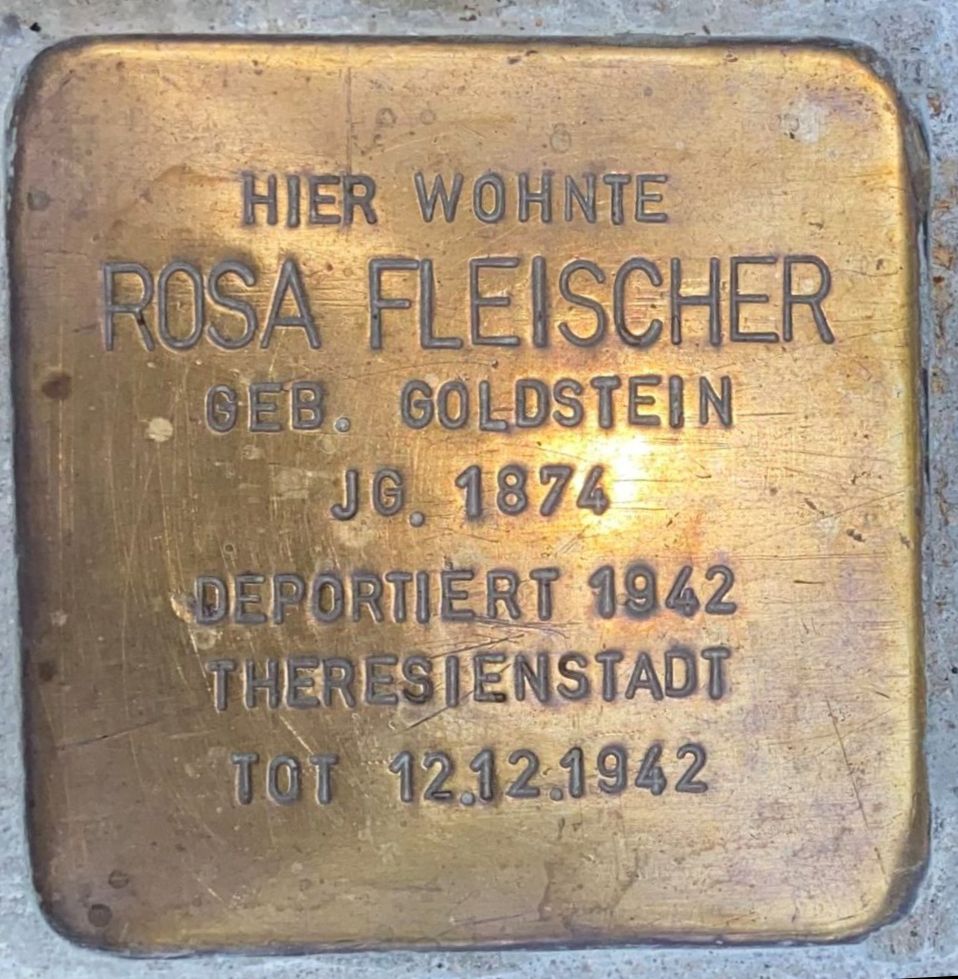
Early on her Own Feet
Rosa Fleischer, née Goldstein, was born on January 21, 1874 in Göppingen. Her parents were Martin Goldstein and Sofie, née Fleischer. Her mother died at the young age of 37, when Rosa was only 14 years old. Her father, who ran a men’s clothing store in Göppingen until 1881, also seemed to have disappeared early from her life. Rosa’s marriage certificate from 1904 reports about him: “…absent, whereabouts unknown, last place of residence in Cologne on the Rhine… .” We were able to learn that Martin Goldstein had emigrated to England, where he started two more families with new partners and lived there until 1928.
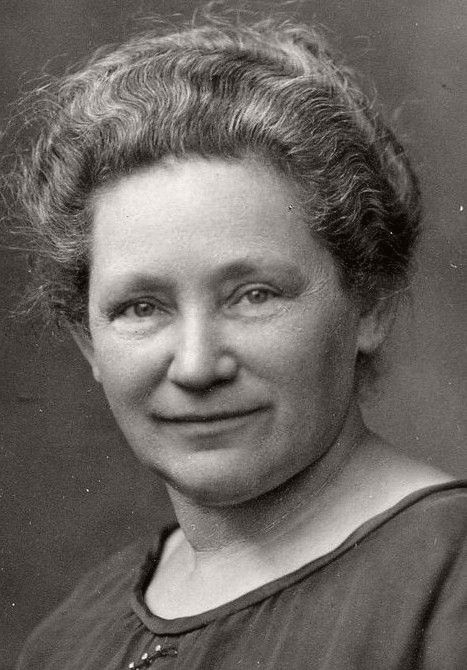
Rosa had six siblings, of which three died in infancy. Apparently Martin Goldstein left his family fundless, as was indicated by the unusual fact for the time being that his daughters made sure to learn a vocation which guaranteed an independence living. In 1894 Rosa began training at the well-known and demanding Jewish nurse’s training school in Frankfurt am Main. After successfully completing her education, she worked for the Association of Jewish Nurses in Frankfurt. The institute employed single Jewish nurses who were paid well so that they could be financially independent. Presumably in 1902, the association entrusted its ‘nurse for the poor’ Rosa Goldstein with the management of the Boarding Children’s Commission (‘Kostkinderkommission’).
Why and when exactly Rosa moved back to Göppingen is unknown. Before her marriage however she was living at Nördliche Ringstrasse 33 with the family of her uncle Samuel Fleischer. Many relatives on her mother’s side of the family lived in Göppingen. Silvia Hurst, née Fleischer, knew from the family history that Samuel Fleischer, Rosa’s uncle, introduced her to her future husband. In November 1904 Rosa married Leopold Fleischer, a distant relative who was eight years older than her. (Leopold’s great-grandparents are Rosa’s great-great-grandparents.) The couple settled in Cannstatt where Leopold was employed as managing director with ‘Mechanical Strap and Ribbon Weaving Mill Gutmann and Marx,’ a firm that had originally been founded in Gőppingen.
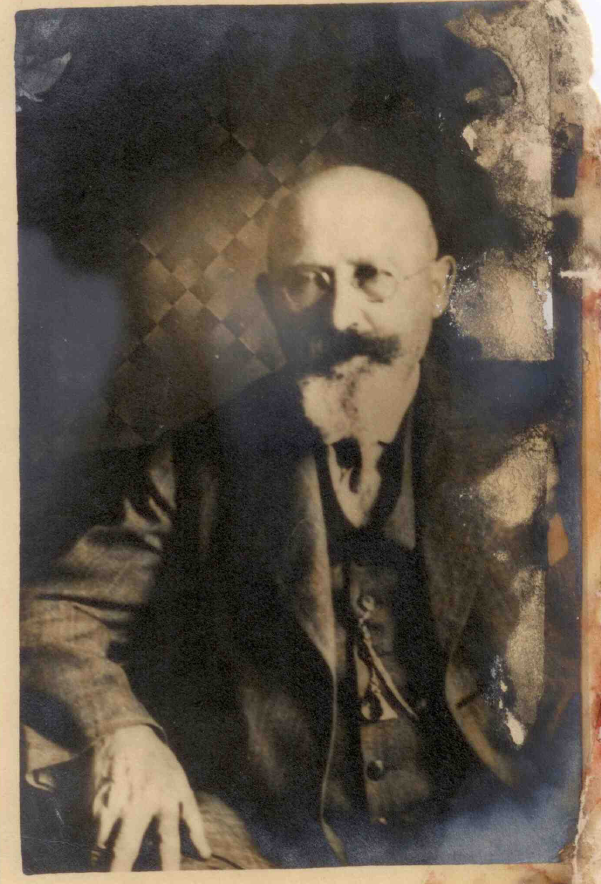
Being Wife and Mother
The couple had three children: Edgar Siegfried born in 1906, Sofie Gabriele born in 1909 and the “latecomer” Elsbeth Beate born in 1918. With their growing family they moved several times, the longest time at one place they lived from 1915-1937 in Cannstatt at Moltkestrasse 29.
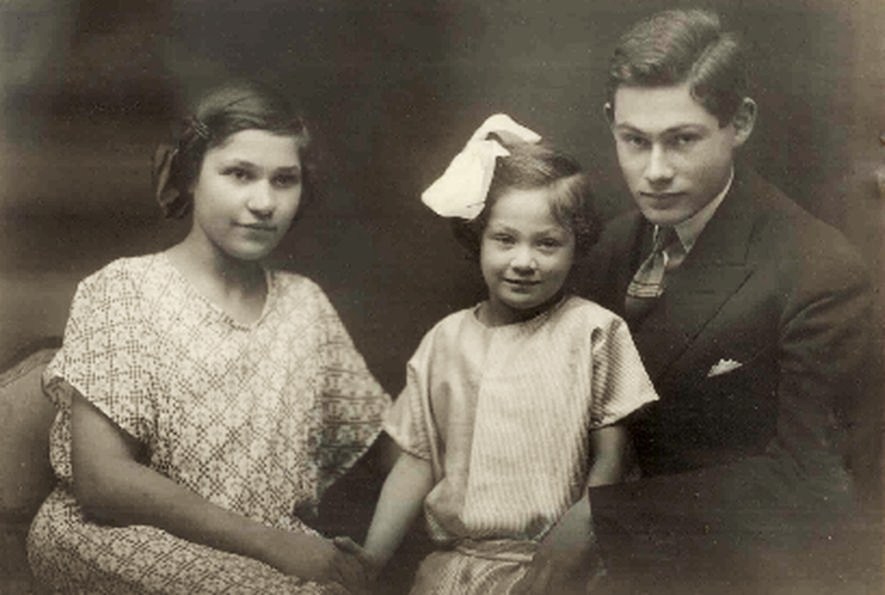
The threat from the Nazi dictatorship was probably recognized quite early by the family. Their son Edgar left Germany in 1934 and fled to Peru. However, he soon died in 1937 in an airplane crash as he was flying to meet his bride.
Their daughter Sofie Gabriele fled in 1936 at first to Italy and 1939 to England. In September 1939, Rosa’s youngest daughter Elsbeth and her husband Richard Frankfurter and Rosa’s first grandchild Edith, also fled to Peru. Rosa’s husband, Leopold, died earlier in October 1938. His obituary reads: “…and he was a devoted companion, a helpful, comforting attendant for so many years to his wife who suffered greatly…” The suffering mentioned here refers to diabetes which brought with it major complications, one of them being Rosa Fleischer going blind.
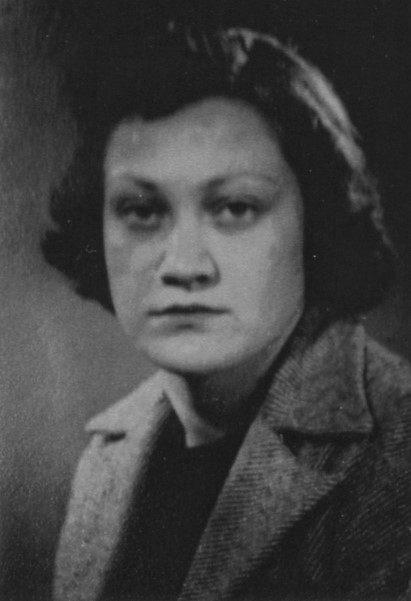
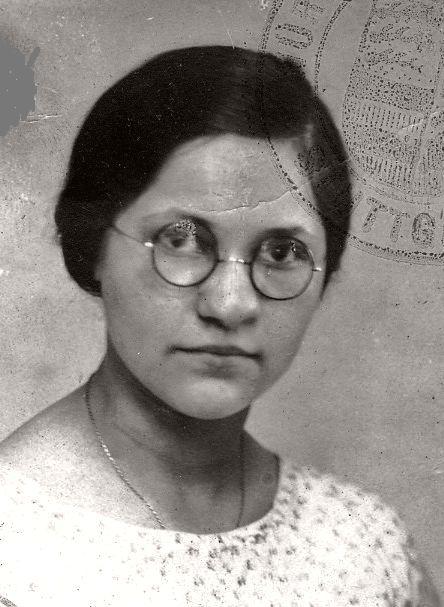
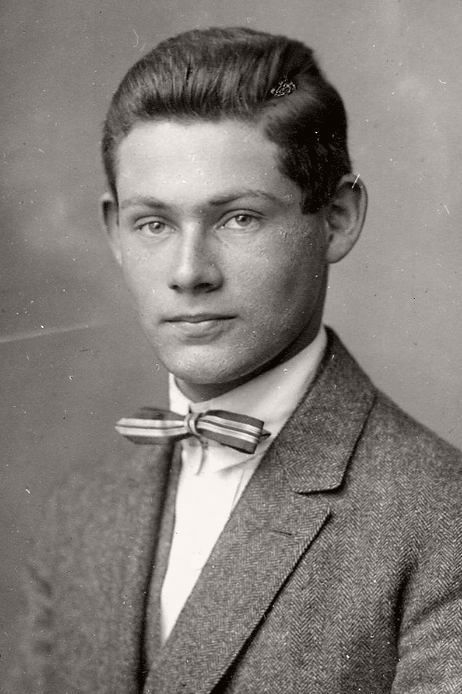
In the Senior Citizens Home
While her husband was still living, the couple had been able to reserve a place in the Jewish retirement home ‘Wilhelmsruhe’ in Sontheim near Heilbronn. However, after Leopold’s death, these plans were changed. Rosa’s son-in-law Richard Frankfurter wrote in a letter dated November 7, 1938: “Elsbeth is in Cannstatt with her mother. Most likely she and her blind sister, who currently lives in Friedrichshafen, will be going to live in Sontheim, with healthy aunt Emilie coming from Bonn to be their caregiver. This should be an arrangement that could be considered a happy one for all three of them.”
The sister who is mentioned and who was blind too refers to the older sister Julie who had remained unmarried. A later letter written by Richard Frankfurter mentions that he had to pay 5,000 Reichsmarks to secure a place in the home for his aunt. By this time, the living conditions there had certainly sunk to well below what they originally had been. For example, the Nazis ordered that twice as many people had to share the same amount of space as before the NS period. In November1940, the home was already closed by the Nazis and the last occupants were evicted.
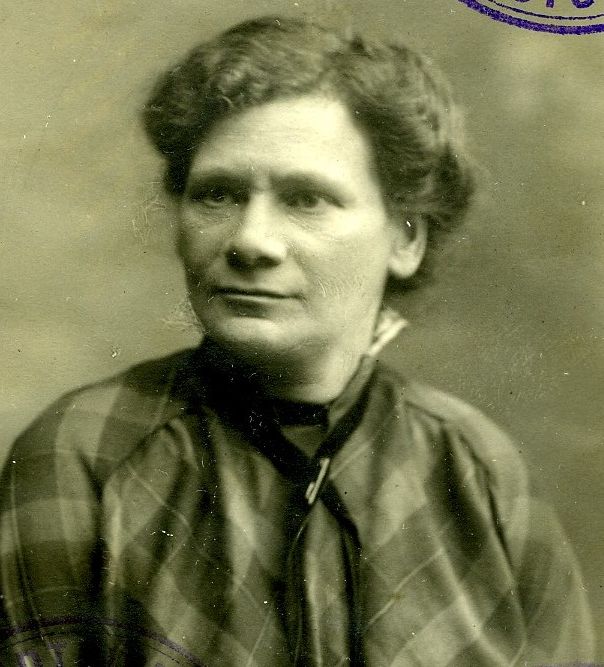
Return to Gőppingen for a Short Time
The oldest sister Julie already died in May 1940 in Sontheim and Rosa and Emilie moved back to their hometown of Göppingen where they still had relatives. Here they were taken in by Hedwig and Sigmund Frankfurter, Rosa’s youngest daughter Elsbeth’s parents-in-law. They lived at Lutherstrasse 11. In a letter from January 2, 1940, Hedwig Frankfurter wrote about Rosa: “The poor mother is blind and diabetic; we are doing as much for her as we possibly can.” In a letter from November 24, 1941: “Mother Rosa is doing well physically. Lately she has been in the yard a lot and that is good for her. She doesn’t speak much about our misfortune, but you can tell that she is suffering greatly.” The misfortune mentioned here is a car accident in which Rosa’s youngest daughter Elsbeth Frankfurter died while being in exile in Peru. And so Rosa’s granddaughter Edith, born in 1938, lost her mother. Within four years Rosa had to suffer the deaths of her husband and two of her adult children, but according to some statements she appeared surprisingly composed, at least on the outside.
Rosa and her sister Emilie were soon forced to leave the relative safety on Lutherstrasse and were forced to move to the senior citizens home in Herrlingen, where Jewish citizens were forced to live in crowded conditions. Hedwig Frankfurter wrote on September 15, 1941, to her son Richard, who of course was Rosa’s son-in-law: “Yesterday we visited Mother Rosa and this brought her great joy. (…) Their health is good, and her admirable serenity helps her to deal with everything more easily. They have nice accommodations, the home is run well, and nice people try to make each others lives more bearable. The room is very small, only the most necessary things fit in, but it has running water and heat. (…).”
There is more that can be read about Rosa’s life, her fears and hopes, in the letter of November 22, 1941, in the attachment.
Compulsory Senior Citizens Home
That this ‘home’, and especially the next one, was only stopovers on the way to certain death was implied in a letter by Hedwig Frankfurter from May 8, 1942: “For Mother Rosa the news (remarriage of her son-in-law Richard Frankfurter. / kmr) will reopen old wounds even though she also hoped Richard would make this decision. She and her sister will have to leave the home in Herrlingen soon and will move to somewhere near Aalen, which means a difficult change for the sick, blind old woman.”
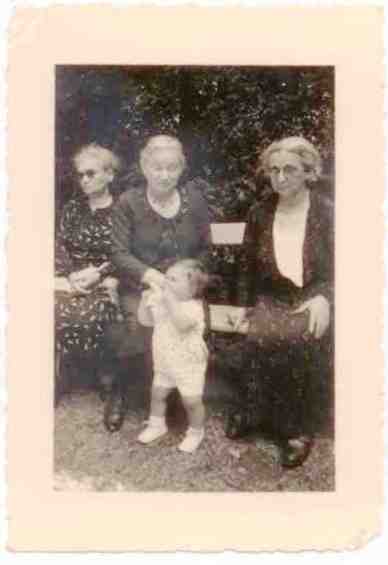
The new location of deportation was the castle in Oberstotzingen where elderly Jews, especially those from the Ulm region, were forced to live. Not only were they were forced to live there, but the Nazi administration also exploited them financially by forcing them to buy a place in the home. Documents from these “contracts” show that Rosa Fleischer was required to pay 6,500 Reichsmarks. Before she was deported to Theresienstadt, she had paid 5,680 Reichsmarks of this amount. The archivist Ulrich Seemüller from Ulm researched the deportation of the occupants of the castle in Oberstotzingen: “Starting on Tuesday evening, August 18, 1942, the Jews had to be ready for deportation from the castle in Oberstotzingen. (…) Before the new day dawned, the old-age home was cleared. Half of the occupants had to be at the train station in Niederstotzingen by 5:19 AM and therefore they were driven there early in the morning when it was still dark in farm wagons, horse-drawn carriages and cattle carts by residents of the village on the bad, unpaved streets. The village spokesperson of Oberstotzingen, Josef Groll, remembered this night 50 years later: ‘The Jews were in despair and the deportation was in no way as quiet and unnoticed as the Gestapo would have wished. Their lamenting and moaning sent a chill down my spine. Today I can still hear the screaming of the old people in my ears and I’ll probably never forget it.’ Obviously the occupants of the old-age home suspected what was awaiting them.”
Murdered in the ‘City the Fűhrer Had Given to the Jews’
On August 22 Rosa Fleischer arrived at the concentration camp Theresienstadt. She survived there only four months and died on December 12, 1942 of the inhumane conditions (hunger, cold, inadequate medical care). Her sister Emilie Goldstein survived the years in Theresienstadt and was murdered in Auschwitz.
On her mother’s side of the family, Rosa’s cousins Bernhard, Julius and Arthur Fleischer were murdered, as did her cousin Martha Albert. Her cousin Pauline Guggenheim decided to escape by terminating her own life. Otto Goldstein, Rosa’s cousin on her father’s side, also committed suicide.
Rosa’s only child who survived her, daughter Sofie Gabriele Fleischer, lived in London where she remained until her death in 1992. Also living near London was Sofie’s son Edgar Fleischer, born in 1951, who died in 2023. Rosa’s granddaughter, Edith Neisser, née Frankfurter, at time being lives in Peru and has two sons and six grandchildren.
On November 25, 2011, Gunter Demnig laid a Stumbling Stone in front of the house at Lutherstrasse 11 in memory of Rosa Fleischer. We would like to thank Mrs. Adler, Mrs. Johnson, Mrs. Neisser and Mr. Fleischer (✝) for the information and photos they provided.
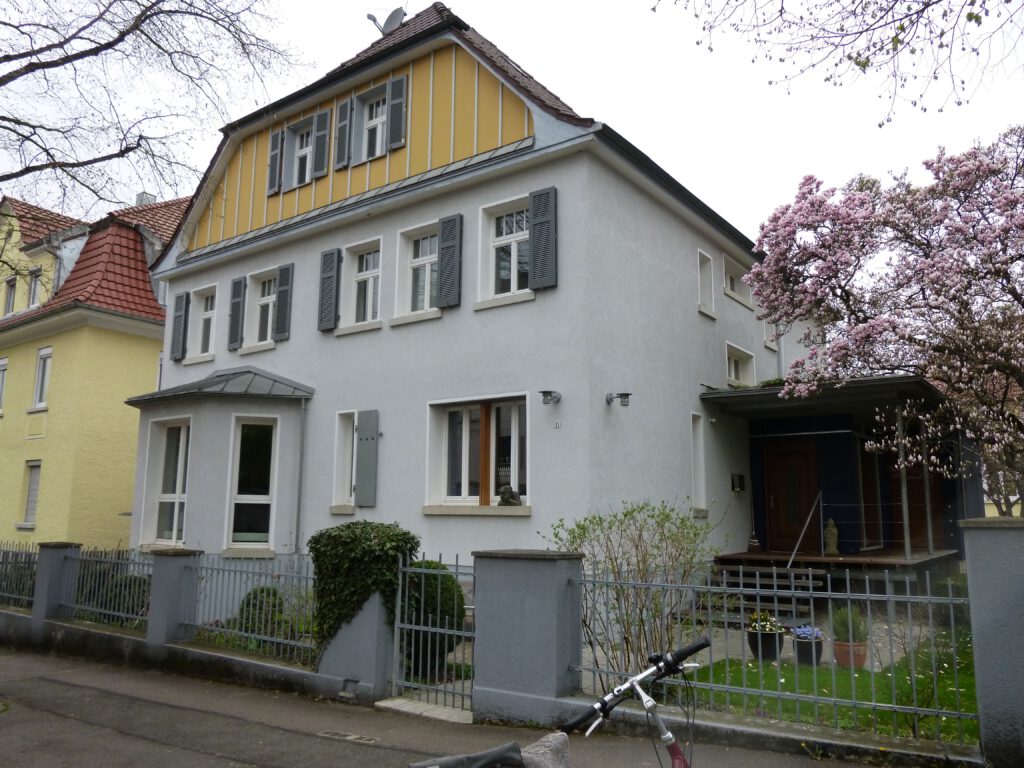
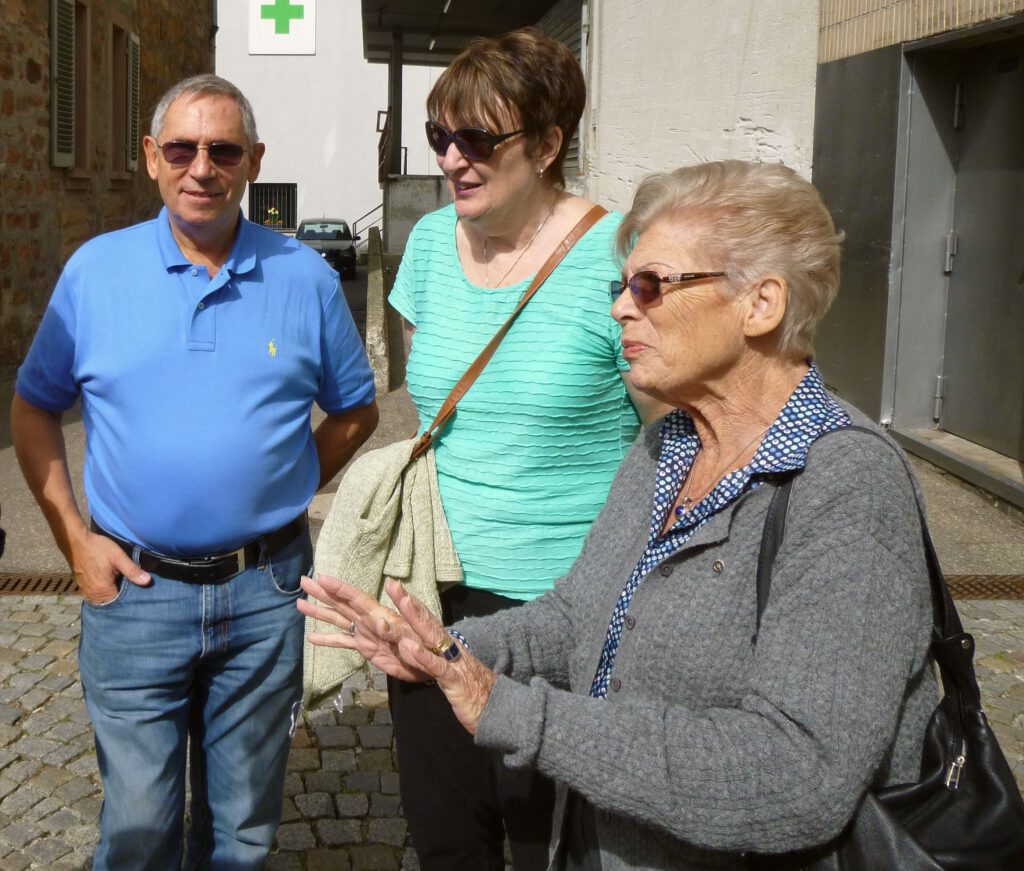
Rosa’s grand child Edgar Fleischer† (left), and grand child Edith Neisser (right) with Jenny Johnson (middle)
FamilyTree Leopold und Rosa Fleischer
(026.01.2026 kmr/ir)


Leave a Reply